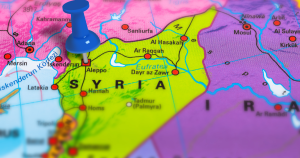7 April 2019
Twenty-five years ago, over a period of just 100 days, an estimated 800,000 people were slaughtered, hundreds of thousands of women raped and an unimaginable number of other atrocities committed as part of a genocide to destroy Tutsi and moderate Hutus in Rwanda. During those days – like the 11 days in Srebrenica just over a year later – the international community seemed powerless to stop the killings. In Rwanda, the failure was most stark, as the United Nations Security Council not only did nothing, but pulled most of the UN peacekeepers who were stationed there out of the country. Despite Rwandan President Kagame’s remarks during a ceremony marking the 20th anniversary of the genocide that Rwanda was actually better off for having had less help from the UN, that failure – shameful at the time and hard to think of even now – did at least spark the embers of what would become the modern international criminal justice system.
Back in 1994, it was difficult to know how to understand what was happening in Rwanda – and it remains difficult to this day. But one thing that was clear is that “Never again” means very little unless it is backed by action, including strengthening human rights, the rule of law and democracy to prevent conditions that allow genocide and crimes against humanity to flourish unchecked. For us, the main guarantee for human rights, the rule of law and democracy is justice. This is why we launched the “There is No Peace Without Justice” campaign in 1994, in response to the horrific events in the former Yugoslavia and in Rwanda, that led to the establishment of the organisation “No Peace Without Justice” the following year. The three main campaigns of NPWJ in the early years were the establishment and effective operations of the International Criminal Tribunal for Rwanda (ICTR), the International Criminal Tribunal for the former Yugoslavia (ICTY) and a permanent International Criminal Court (ICC); the third would not have been possible without the successful establishment of the first two.
Rwanda suffered greatly during those 100 days a quarter of a century ago and it suffered during the months and years that followed. Rwanda is still suffering today at the memory of the genocide, but it is pulling through its dark days and beginning to embrace a brighter future. Part of that journey from despair towards light was facilitated by justice and by recognising the rights of victims to redress, to truth and to remembrance, both at the international level through the ICTR and at the national level through a range of different efforts. This is a lesson we must remember, especially during this time of crisis for the ICC: justice may seem difficult or even impossible to achieve, but it is essential for a country to move from a time of conflict or political unrest to a time of peace.
It would be trite to say that this means the victims did not die in vain: they did die in vain, senseless deaths that could have been avoided. This is why we must honour them and remember them, not just on the anniversary of their deaths through words, but through our everyday actions in support of human rights, the rule of law and democracy. Whether through small acts of everyday defiance of autocracy or defence of those without voice or power, or through dedicating our life’s work to support those principles, we should honour the victims not only in Rwanda but everywhere, in our day to day lives.
For further information, contact Alison Smith on asmith@npwj.org or Nicola Giovannini on ngiovannini@npwj.org.




